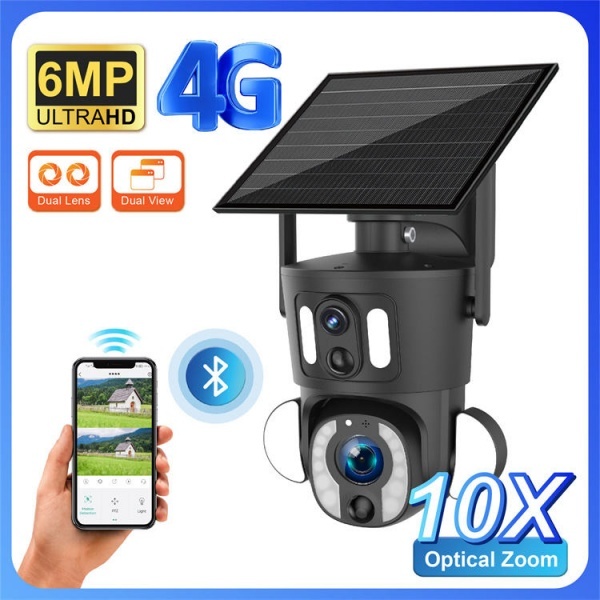Understanding Local Regulations: A Guide to Solar Camera Installation and Use
The global demand for solar-powered security cameras is surging. For businesses—from 4G operators to Amazon sellers—this presents a massive opportunity. However, navigating the complex web of international regulations can be a significant roadblock. A single misstep in installation or data handling can lead to severe fines, legal action, and irreparable damage to your brand’s reputation. This is a critical pain point we see consistently across our B2B partners in the US, UK, Germany, and beyond.
As engineers with over a decade of experience designing and manufacturing these systems, we understand that technical excellence isn’t enough. Your product must be legally compliant in the market where it’s sold and installed. This guide breaks down the essential regulatory considerations, offering a clear roadmap to ensure your solar security camera business operates responsibly, ethically, and profitably.
Why Regulatory Compliance is a Business Imperative
For distributors, wholesalers, and installers, overlooking local laws is not an option. The risks are substantial, ranging from financial penalties under regulations like GDPR to civil lawsuits from individuals claiming privacy violations. Compliance isn’t just about avoiding trouble; it’s a powerful competitive differentiator that builds trust and enhances your brand’s authority.
When your customers know that your products and installation guidelines adhere to local laws, they see you as a credible, professional partner. At UBOXCAM, we build our cameras with this in mind, offering customizable firmware and hardware that can be adapted to meet specific regional requirements. This proactive approach transforms a potential liability into a valuable selling point for your business.
Key Regulatory Pillars: Privacy, Placement, and Connectivity
While laws vary by country, they almost always revolve around three core principles. Understanding these pillars is the first step toward building a compliant operational framework for your business.
- Privacy & Data Protection: This is the most significant concern. It governs who can view footage, how it is stored, for how long, and who it can be shared with. Regulations like Europe’s GDPR are stringent, placing clear responsibilities on anyone who captures and stores personal data.
- Placement & Field of View: Where a camera is installed is critical. Laws universally protect an individual’s “reasonable expectation of privacy.” This means you cannot aim cameras at a neighbor’s windows, backyard, or any private space. The focus must be on securing your own property.
- Connectivity & Power Standards: Wireless devices, including 4G and WiFi cameras, must comply with national regulations for radio frequency emissions (e.g., FCC in the US, CE marking in Europe). This ensures they don’t interfere with other wireless services. As a manufacturer, we ensure all our wireless outdoor security cameras meet these essential certifications.
A Comparative Look at Major Markets
Navigating the differences between key markets is crucial for international businesses. The approach to surveillance in the United States differs significantly from that in Germany or the UK. Below is a high-level comparison highlighting the main points of divergence.
| Feature | United States | United Kingdom | Germany |
|---|---|---|---|
| Key Legislation | State-level laws (e.g., CCPA), “Reasonable Expectation of Privacy” doctrine | GDPR, Data Protection Act 2018 | GDPR, BDSG (Federal Data Protection Act) |
| Public Space Recording | Generally permissible for video. Audio recording is highly restricted (wiretapping laws). | Requires a clear, justifiable purpose and prominent signage. | Highly restricted. Requires a compelling legitimate interest that outweighs privacy rights. |
| Neighbor’s Property | Must avoid capturing private areas (windows, backyards). | Strictly forbidden to monitor beyond your property boundary without explicit consent. | Extremely strict. Even aiming a camera toward a neighbor’s property can be deemed illegal. |
| Signage | Recommended as a best practice to deter crime and reduce liability. | Legally required if recording any area accessible to the public. | Mandatory and must be clearly visible before entering the monitored area. |
Deep Dive: United States Regulations
In the U.S., security camera laws are a patchwork of state and local rules rather than a single federal mandate. The guiding principle is the “reasonable expectation of privacy.” A person has this expectation inside their home, in their fenced backyard, or in a restroom. There is no such expectation on a public sidewalk or in your own front yard visible from the street.
One of the most critical and often misunderstood aspects is audio recording. Federal and state wiretapping laws are very strict. Many states require two-party consent, meaning you cannot legally record a conversation unless all parties agree. For this reason, we engineer our cameras with the ability to disable audio recording via firmware, a crucial customization for our B2B clients to avoid legal liability.
Navigating UK and EU GDPR Requirements
The General Data Protection Regulation (GDPR) in the UK and EU places significant responsibility on the camera owner, who is considered a “data controller.” If a camera captures images of people outside a private property boundary (e.g., on a public footpath), GDPR applies. This means data must be handled transparently and for a legitimate purpose.
For distributors and installers, this means advising end-users on key compliance steps:
- Provide Clear Signage: Signs must be visible, informing people that recording is in progress and why.
- Justify Recording: The user must have a legitimate reason, such as preventing theft or vandalism.
- Manage Data Securely: Footage must be stored securely and deleted after a reasonable period. Our battery-powered cameras offer both encrypted local and cloud storage options to meet this need.
- Respond to Access Requests: Individuals have the right to request a copy of footage they appear in.
This compliance process is vital for building a trustworthy brand in the European market.
The German Approach: Privacy First
Germany enforces some of the world’s most stringent privacy laws through its Federal Data Protection Act (BDSG), which works in tandem with GDPR. The core principle is *Datensparsamkeit* (data minimization), meaning you should only collect data that is absolutely necessary. For security cameras, this translates into a simple rule: record your own property and nothing else.
Pointing a camera at a public street, a neighbor’s driveway, or even a shared apartment building hallway is almost always illegal without explicit consent from all affected parties. This presents a major challenge for security solutions. To address this, we offer cameras with advanced privacy masking features. This allows users to digitally black out specific areas in the camera’s field of view, ensuring they only record what is legally permissible. This technical solution directly addresses a key market pain point.
Engineer’s Checklist for Compliant Installation
Providing your installers and end-users with a clear, actionable checklist is an excellent way to add value and ensure compliance. This framework helps prevent common mistakes and demonstrates a commitment to ethical practices.
- 1. Conduct a Site Assessment: Before installation, confirm the specific local, state, or national laws that apply.
- 2. Verify Camera Placement: Ensure the camera’s field of view is strictly limited to the user’s property. Avoid capturing neighboring homes, public paths, or any area where privacy is expected.
- 3. Install Clear Signage: Place prominent, easy-to-read signs indicating that video surveillance is active.
- 4. Configure Audio Settings: Disable audio recording by default. Only enable it if you have confirmed it is legal for the specific use case and location.
- 5. Secure Data Transmission and Storage: Use cameras that offer end-to-end encryption. Advise users on secure password practices and the benefits of encrypted cloud or local storage.
- 6. Establish a Data Policy: For commercial use, have a simple written policy stating the purpose of the surveillance and how long footage is retained before being deleted.
How UBOXCAM Empowers Your Business with Compliant Solutions
Navigating these regulations is complex, but you don’t have to do it alone. As a specialized design and production factory, we see it as our job to provide you with products that are not only technologically advanced but also adaptable to global legal landscapes.
Our engineering team works directly with B2B clients to provide market-specific solutions. Whether it’s developing firmware with privacy masking for the German market or ensuring our 4G and WiFi cameras carry the necessary FCC/CE certifications, our focus is on being your technical partner. We understand that the reliability of our Battery Management System (BMS) is just as important as the legal compliance of our software. We help you turn regulatory challenges into a mark of quality and trust for your brand.
Ready to build a reliable and legally compliant security product line for your target market? Contact the UBOXCAM engineering team today for a consultation on custom solutions.

